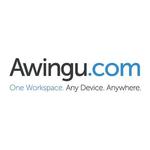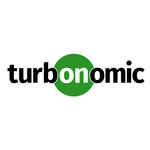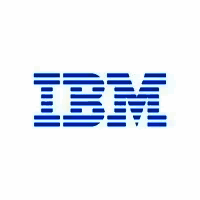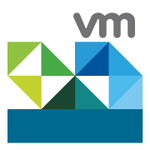Description

Awingu

Nomadesk
Comprehensive Overview: Awingu vs Nomadesk
Awingu and Nomadesk are both software solutions designed to enhance remote work and secure collaboration, albeit with different focuses and functionalities. Here’s a comprehensive overview of each:
Awingu
a) Primary Functions and Target Markets:
- Primary Functions: Awingu provides a unified workspace solution that enables secure access to files and applications from any device with a web browser. It is designed to virtualize legacy applications, desktops, and file environments, making them accessible remotely without the need for complex VPN setups.
- Target Markets: Awingu targets a broad spectrum of industries including healthcare, finance, education, and government sectors. It is particularly appealing to organizations with a need for secure remote access to their on-premises applications and desktops.
b) Market Share and User Base:
- Market Share: Awingu competes in the digital workspace and remote application access market, where it has established a niche presence. It competes with larger players like Citrix and VMware but differentiates itself with a simpler, browser-based approach.
- User Base: While specific user numbers are not typically disclosed, Awingu has a growing user base among mid-sized enterprises and specific verticals interested in simplified, secure remote access.
c) Key Differentiating Factors:
- No Need for VPN: Awingu does not require a VPN or installation of a client-side software, which simplifies the setup and enhances security.
- HTML5-Based Access: It leverages HTML5 technology, allowing it to run across different platforms and devices seamlessly.
- Security Features: It includes built-in security features like MFA, SSL encryption, and audit logs, which are critical for compliance-driven industries.
Nomadesk
a) Primary Functions and Target Markets:
- Primary Functions: Nomadesk is a file sharing and synchronization solution aimed at secure storage and collaboration over the cloud. It allows users to create virtual drives to access files offline and sync them when connected.
- Target Markets: It is focused on small to medium-sized businesses (SMBs) and enterprises looking for secure file collaboration solutions, often in remote or distributed teams.
b) Market Share and User Base:
- Market Share: Nomadesk operates in the enterprise file synchronization and sharing (EFSS) market. It doesn’t have as large a market share as dominant players like Dropbox or Box but serves a substantial niche of users prioritizing security and on-premise data control.
- User Base: Nomadesk has built a reliable user base mainly consisting of SMBs and teams within larger enterprises needing secure collaboration tools.
c) Key Differentiating Factors:
- Virtual Drives: The ability to create virtual drives that sync files offline is a key feature, allowing users to work without an internet connection and ensuring files are updated when connectivity resumes.
- Data Encryption: Nomadesk offers strong encryption protocols both in transit and at rest, appealing to security-conscious businesses.
- Theftguard™ Technology: This unique feature remotely wipes data from devices in case of loss or theft, adding an extra layer of security.
Comparison and Conclusion
While both Awingu and Nomadesk target secure remote work and collaboration, they cater to different needs within this spectrum:
-
Awingu shines in scenarios where access to legacy applications and secure remote desktop environments is key. Its simplicity, security measures, and lack of client installation requirements differentiate it from more complex solutions.
-
Nomadesk, on the other hand, appeals to teams and organizations focused on secure file synchronization and sharing, with standout features like offline access and strong data security measures.
Both products serve their respective niches effectively, offering specific advantages tailored to distinct remote work challenges and preferences. Users choose between them based on whether their priority lies in application access and desktop virtualization (Awingu) or secure file sharing and synchronization (Nomadesk).
Contact Info

Year founded :
Not Available
Not Available
Not Available
Not Available
Not Available

Year founded :
2004
+32 9 233 68 86
Not Available
Belgium
http://www.linkedin.com/company/nomadesk-bv
Feature Similarity Breakdown: Awingu, Nomadesk
Awingu and Nomadesk are both products that facilitate access to files and collaboration, but they focus on different aspects and deployment methods. Here is a breakdown of their features, based on what they generally offer:
a) Core Features in Common
-
File Sharing and Synchronization: Both Awingu and Nomadesk allow users to share files easily and synchronize them across different devices. This ensures that users have access to the latest versions of their files wherever they are.
-
Secure Access: Both solutions emphasize security, offering encrypted access to data to protect sensitive information during transfer and at rest.
-
Remote Access: They provide remote access capabilities, although their approaches differ. Awingu acts as a unified workspace providing access to legacy applications and desktops, while Nomadesk focuses more on file sharing.
-
Collaboration Tools: Both platforms provide tools to facilitate collaboration among users, such as shared workspaces and file management capabilities.
-
User Management: Both solutions have features that allow administrators to manage user permissions and access, which is crucial for maintaining security and organization in a business.
b) User Interface Comparison
-
Awingu: Awingu provides a browser-based interface that acts as a unified workspace. Users access applications, desktops, and files through a single portal without the need to install clients on their devices. Its interface is generally straightforward, designed to be intuitive and easy to navigate for all users, regardless of their technical expertise.
-
Nomadesk: Nomadesk has more of a traditional file management interface, similar to cloud storage solutions like Dropbox or Google Drive. It focuses on simplicity, providing a user-friendly experience with drag-and-drop capabilities for file management, as well as features that are built to integrate seamlessly with users' existing systems.
c) Unique Features
- Awingu Unique Features:
- Legacy Application Support: Awingu is particularly strong in providing access to legacy Windows applications and desktops. It can virtualize these applications and deliver them via a browser, which is a significant advantage for businesses using older software.
- No Client Installation: Users can access Awingu services via standard web browsers with no need to install local client software, which simplifies IT management.
- Unified Workspace: Its ability to merge access to files, applications, and desktops into a single workspace sets it apart from more traditional file-sharing services.
- Nomadesk Unique Features:
- Local Drive Integration: Nomadesk creates a secure local drive on users’ devices that resemble traditional file systems, making it easy for users to access and manage files offline.
- Remote Wipe: Nomadesk offers a powerful remote wipe feature that allows administrators to delete files from a user's device remotely, which is particularly useful if a device is lost or stolen.
- Unlimited Storage Capabilities: Nomadesk is known for offering unlimited storage capabilities, which is attractive for users who handle large volumes of data.
Both Awingu and Nomadesk cater to slightly different needs and organizational strategies, with Awingu focusing more on application and desktop access and Nomadesk offering robust file-sharing features with advanced data protection options.
Features

User Access and Security
Remote Desktop and Application Access
Admin and Management Features
Collaboration and File Sharing

Data Sync and Sharing
Data Protection
Accessibility
Collaboration and Productivity
Best Fit Use Cases: Awingu, Nomadesk
Awingu and Nomadesk are both products designed to facilitate secure remote access and file sharing, but they serve distinct purposes and cater to different business needs. Let’s delve into the best fit use cases for each:
Awingu
a) For what types of businesses or projects is Awingu the best choice?
Awingu is primarily a unified workspace solution that allows access to legacy software, web applications, and desktop environments through a browser-based interface. Here's where Awingu shines:
-
Enterprises with Legacy Systems: Businesses that rely on legacy applications that are not easily migrated to cloud infrastructure find Awingu beneficial as it provides remote access to these applications without substantial infrastructure changes.
-
Businesses with a Remote Workforce: Companies needing secure remote access solutions for their remote employees. Awingu’s browser-based approach eliminates the need for VPNs, reducing complexity and cost.
-
Sectors with High Compliance Needs: Industries like healthcare, finance, and legal that require secure access to sensitive information benefit from Awingu’s security features, such as SSL encryption and multi-factor authentication.
-
Educational Institutions: Schools and universities looking to provide students and staff access to software and applications on their personal devices.
Nomadesk
b) In what scenarios would Nomadesk be the preferred option?
Nomadesk is a file sync and sharing platform designed to provide secure data storage and sharing capabilities. It’s best suited for:
-
Small to Medium-Sized Enterprises (SMEs): Businesses looking for a straightforward, reliable file sharing and synchronization tool without the need for complex IT infrastructure.
-
Teams Collaborating on Projects: Project-based teams that require seamless and secure sharing of documents and files.
-
Companies with Mobile Workforces: Organizations that have employees working on the go needing offline access to important documents.
-
Organizations with Security Concerns: Companies that prioritize security, as Nomadesk offers end-to-end encryption and theft protection features.
d) How do these products cater to different industry verticals or company sizes?
-
Industry Verticals:
- Awingu is suited for: Healthcare, financial services, legal firms, and education sectors, where secure remote access to applications and data is critical.
- Nomadesk is suited for: Creative industries, construction, and consulting firms where project collaboration and file sharing are integral.
-
Company Sizes:
- Awingu: Its scalability makes it appealing for both medium-sized businesses and large enterprises with complex IT needs and security requirements.
- Nomadesk: It is more beneficial for small to medium-sized enterprises that need secure and efficient file storage and sharing without the overhead of significant IT resources.
By understanding the distinctive strengths of Awingu and Nomadesk, organizations can better align their technology choices with their operational needs, ensuring secure and efficient workflows in a digitally-driven business landscape.
Pricing

Pricing Not Available

Pricing Not Available
Metrics History
Metrics History
Comparing undefined across companies
Conclusion & Final Verdict: Awingu vs Nomadesk
To provide a comprehensive conclusion and final verdict on Awingu and Nomadesk, we should evaluate their features, pricing, user experience, and any notable pros and cons. Here's a structured analysis:
Overall Value
Awingu
Awingu offers a unified workspace that enables access to applications, files, and desktops in a secure and browser-based manner. Its strength lies in its simplicity, security features, and the ease with which it enables a mobile workforce to access corporate environments without needing extensive on-premise infrastructure.
Nomadesk
Nomadesk is a cloud storage solution that focuses primarily on secure file sharing and synchronization. It supports offline access, has a robust encryption system, and provides tools for collaboration across various devices.
Best Overall Value
Selecting the best overall value depends on the specific needs of the business or user.
- Awingu might offer the best value for organizations looking to provide remote access to a variety of applications and desktops, emphasizing ease of deployment and simplicity in user management.
- Nomadesk may be a better option for organizations with a primary need for secure file sharing and offline access, especially for small to medium-sized businesses that require strong encryption and collaboration features.
Pros and Cons
Awingu
Pros:
- Simplifies remote access to various applications and desktops without heavy infrastructure requirements.
- Strong focus on security, including multi-factor authentication and contextual access policies.
- No need for endpoint installations, as it runs on HTML5-compatible browsers.
Cons:
- May have limitations if heavy customization or integration with legacy systems is required.
- The pricing structure might be higher compared to basic file-sharing services.
Nomadesk
Pros:
- Strong security features with encryption and the ability to track and manage files efficiently.
- Suitable for environments needing offline file access and synchronization across devices.
- Easy collaboration on documents and projects, particularly suitable for smaller teams.
Cons:
- Primarily focused on file sharing, lacking broader application and desktop virtualization capabilities.
- Might not scale as effectively for larger enterprises needing comprehensive remote access solutions.
Recommendations
-
Assess Needs: Determine if your primary requirement is application/desktop access (Awingu) or secure file sharing (Nomadesk). Aligning the tool with business needs is crucial for maximizing value.
-
Security Requirement: If security is the top-most concern, both solutions provide robust security. However, consider specific security features that align with your regulatory requirements.
-
Scalability and Integration: For businesses anticipating rapid expansion or requiring complex system integration, Awingu might offer more scalability options. On the other hand, Nomadesk’s ease of use and secure file sharing might appeal to smaller teams or businesses focused primarily on collaboration.
-
Budget Considerations: Assess pricing models in relation to your budget constraints. Awingu might have higher upfront costs due to its broader capabilities, whereas Nomadesk can be more cost-effective for small teams focused on file sharing.
Given these points, the final choice between Awingu and Nomadesk should be tailored to the organization's specific needs, balancing between access needs, security requirements, and budget considerations.
Add to compare
Add similar companies



